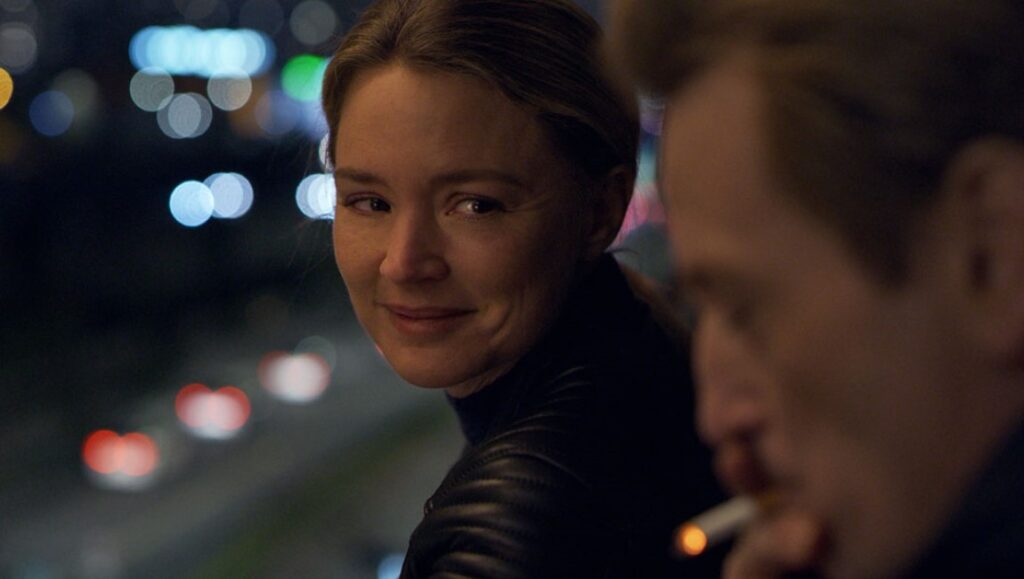It goes without saying that the city of Paris, more than any other megalopolis, has — as a constant of film history — provided an unending range of both visual and narrative fodder, and also embodied a certain characteristic that can not only present itself as a milieu, but also, in the hands of different auteurs, be reshaped and remolded more crucially as a major character in its own right. In this manner, Alice Winocour’s fourth feature, Revoir Paris — inspired by the Bataclan concert hall attack of 2015 which her brother survived — is a modern-day Parisian (melo)drama about a translator named Mia (portrayed by the adorable and enchanting Virginie Efira) who, during an otherwise relaxed evening, suddenly finds herself caught up in the tragic turmoil of a terrorist attack. Mia miraculously escapes the horrifying ordeal, but it nonetheless imprints such profound emotional wounds upon her that her very memories are affected; she withdraws into a post-traumatic state of amnesia which, months later, will lead her into an everyday urban quest to recollect the missing parts.
Through the aid of a series of encounters with other survivors, Mia tries to reassemble the bigger picture of that haunting evening, all while wrestling with mixed feelings: sympathy, love, guilt, grief. In one scene, Mia accompanies young Félicia (Nastya Golubeva Carax) — who has lost her parents in the attack — to an art museum in order to find a specific detail in Claude Monet’s famous Water Lilies. But as much as this search for lost memories and joys enables Mia to both discover hitherto unseen aspects of Paris (notably, in her search for a Senegalese kitchen worker, she finds herself in a poor immigrant district) and have a deeper understanding of other victims’ damaged psyches, forging more intimate bonds with strangers in the process, the film’s somewhat loose narrative does not always demonstrate conviction; Revoir Paris’ most tender side isn’t entirely fleshed out organically, though it’s perhaps more apparent in certain instances, such as an encounter between Mia and Thomas (Benoît Magimel) which precipitates an eventual romantic affair.
Still, despite the lack of an entirely taut story, and the sense that Winocour’s directions remain conservatively rooted in a familiar sense of mise-en-scène, what does count — apart from Efira’s effectively moving presence — is the filmmaker’s gentle tone and observational approach, both of which help create distance between the film’s core — Mia’s interiority — and the clichéd socio-political intrusions that pepper its narrative. Even more important to its success, Revoir Paris’ unique sound design (a simultaneous array of Anna von Hausswolff’s ambient score, a melange of urban soundscapes, and the film’s easy-flowing dialogues) and its soft, velveteen visuals, courtesy of DP Blaise Harrison, enhance the captivating mood and atmosphere through which Mia’s journey is filtered. Both delightfully serene and enigmatically melancholic, while also dotted with moments of genuine fright and unexpected ardor, Revoir Paris modestly bestows upon viewers a sense of what it truly means to recover the essence of being alive in the wake of our darkest and most desperate hours, all poignantly set within the romanticized French capital. After all, Paris est toujours Paris.
Published as part of TIFF 2022 — Dispatch 5.


Comments are closed.